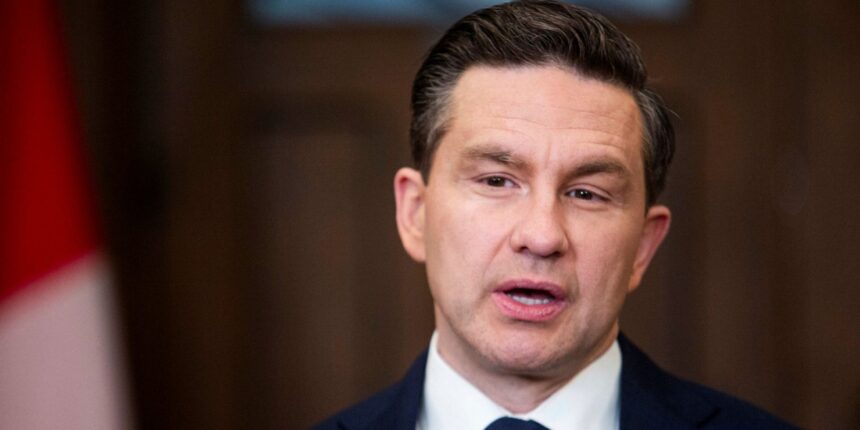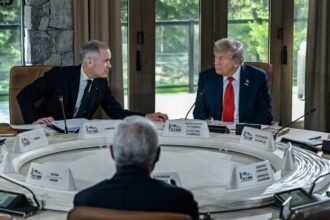As the political landscape shifts ahead of the upcoming January policy convention, discontentment brews within the Conservative Party of Canada’s internal power structures. Former Alberta national councillor Marilyn Elliott is contemplating a return to party politics, driven by what she describes as mounting frustration with the current direction of the party’s National Council.
“The National Council has strayed from its fundamental purpose,” Elliott told CO24 News in an exclusive interview. “When I left, I hoped things would improve, but watching from the sidelines has been deeply concerning.”
Elliott, who served for six years on the National Council between 2016 and 2022, has become increasingly vocal about what she perceives as serious governance issues within the party’s administrative body. Her potential comeback arrives at a critical juncture for Canada’s Conservatives, who continue to lead in national polls but face internal divisions over policy direction and candidate selection procedures.
“What we’re seeing now is a council that seems more interested in advancing personal agendas than representing party members,” Elliott explained. “The nomination process has become particularly problematic, with qualified candidates being blocked for seemingly arbitrary reasons.”
The controversy stems partly from recent nomination battles in several key ridings, where local constituency associations have reported interference from the party’s central apparatus. Sources within the Conservative Party confirm that at least three nomination races have been challenged due to alleged procedural irregularities.
Party insiders speaking on condition of anonymity told CO24 that Elliott commands significant respect among the grassroots membership, particularly in Western Canada. Her potential return could signal a broader push to recalibrate the power balance between the party leadership and its elected council.
“Marilyn has always been a principled voice for democratic processes within the party,” said former Conservative MP James Thompson. “Her concerns about nomination transparency reflect what many members are privately discussing.”
The 15-member National Council, responsible for party governance between conventions, has faced criticism for what some describe as excessive deference to the leader’s office. This tension highlights the perpetual challenge within Canadian political parties: balancing central strategic control against local democratic representation.
Conservative leader Pierre Poilievre has maintained public distance from these internal disputes, focusing instead on economic messaging that has resonated with Canadian voters. However, sources close to Poilievre acknowledge that council dynamics will influence candidate selection ahead of the next federal election.
Elliott’s potential candidacy represents more than a personal comeback—it embodies a fundamental debate about the party’s internal democracy. As Conservative membership continues to expand, questions about who controls candidate selection have taken on renewed urgency.
“The rules are clear,” noted Elliott. “Nomination processes must be fair, transparent, and respectful of constituency autonomy. When we deviate from those principles, we undermine our credibility with the very voters we hope to represent.”
Political analysts suggest that while these internal conflicts rarely capture public attention, they can significantly impact a party’s electoral readiness and candidate quality.
“The strength of any political party depends on its ability to attract and select the best possible candidates,” said Dr. Eleanor Westbrook, political scientist at the University of Toronto. “When nomination processes become contentious, it can discourage qualified individuals from putting their names forward.”
As the January convention approaches, Elliott and her supporters are gauging support across the country, particularly among constituency association presidents who have expressed similar concerns about centralized control of nominations.
The question now facing Canada’s Conservatives extends beyond one former councillor’s potential return: can the party maintain its polling advantage while addressing internal governance challenges that threaten to undermine its democratic foundations?










